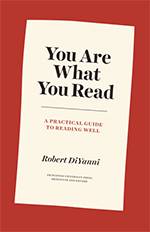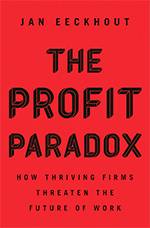Raj Persaud
Says More…
This week in Say More, PS talks with Raj Persaud, a psychiatrist and author of The Mental Vaccine for COVID-19.
Project Syndicate: In January, after the deadly riot at the US Capitol, you warned that deplatforming Donald Trump for inciting the violence could actually lead to more violence. Since then, however, Trump seems to have struggled to find a new platform. And Facebook has announced that it will uphold Trump’s suspension until at least 2023, and introduced a stricter protocol for content posted by public figures during ongoing violence or civil unrest. How do you rate Facebook’s approach? Are we underestimating the risks posed by Trump and his supporters, now that they are no longer engaging on mainstream platforms.
Raj Persaud: In 1859, the distinguished philosopher John Stuart Mill published his famous essay, “On Liberty,” in which he argued that allowing people with whom we vehemently disagree to express their ideas – even offensive views – is vital. This does not benefit only those whose ideas we find objectionable. Nor is it important only to keep us away from some slippery slope of censorship. Rather – and I think this point is often missed – it is good for those of us who disagree with their ideas, not least because it helps protect against intellectual laziness. We can’t just decide what we believe and then stop thinking; instead, we must constantly re-examine, develop, and refine our beliefs, if only to refute our adversaries’ arguments.
At a time when people are increasingly embracing deplatforming – and, more broadly, “canceling” people who express (or have expressed in the past) controversial or problematic views – Mill’s wisdom is more pertinent than ever. When we condemn others out of hand, or demonize them, or label them crazy, we are dismissing or ignoring forces that merit our attention. Rather than canceling or deplatforming people, we should be examining how they came to hold the beliefs we find objectionable. In considering the risks Trump and his supporters represent, this is where we should start.
Persaud recommends
We ask all our Say More contributors to tell our readers about a few books that have impressed them recently. Here are Persaud's picks:
-

You Are What You Read: A Practical Guide to Reading Well
by Robert DiYanni
You probably don’t need to be convinced that reading is good for you. And yet, what you read is probably a hell of a lot more important than you think. In fact, DiYanni argues, it may well determine who you become. I haven’t even finished this book yet, and I am already convinced: reading is a foundation stone of a life well lived.
-

The Profit Paradox: How Thriving Firms Threaten the Future of Work
by Jan Eeckhout
We might like to assume that, despite their flaws, tech giants like Facebook and Google are driving innovation and economic progress. Not so, says Jan Eeckhout: data indicate that today’s huge tech firms may well have been stifling creativity and entrepreneurial activity all along. This book should serve as wake-up call – before we sleepwalk into disaster.
-

Radical Markets: Uprooting Capitalism and Democracy for a Just Society
by Eric A. Posner and E Glen Weyl
While markets have proved efficient in some areas, like automobile production, they are often deemed incapable of addressing societal ills, and even held responsible for those ills. This sweeping analysis shows that the problem is not markets themselves, but how they are built. With the right design, a market can solve virtually any social problem. Take the “one person, one vote” principle that lies at the heart of democracy. Why not give each voter a budget of, say, 100 votes, which they can distribute among the causes or candidates they see as more important?
From the PS Archive
In “Why Women Make Better Crisis Leaders,” Persaud says their path to power, not “feminine” traits, explains woman-led governments’ strong pandemic performance. Read more.
In “The Psychology of Superstar Sex Predators,” Persaud and Peter Bruggen suggest that the same traits that make people successful can also explain the tendency to exploit others. Read more.
Around the web
In a commentary in Pscyhology Today, Persaud and Bruggen consider the true power of the “home advantage” in elite sports. Read the article.
